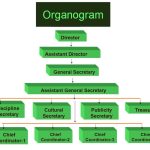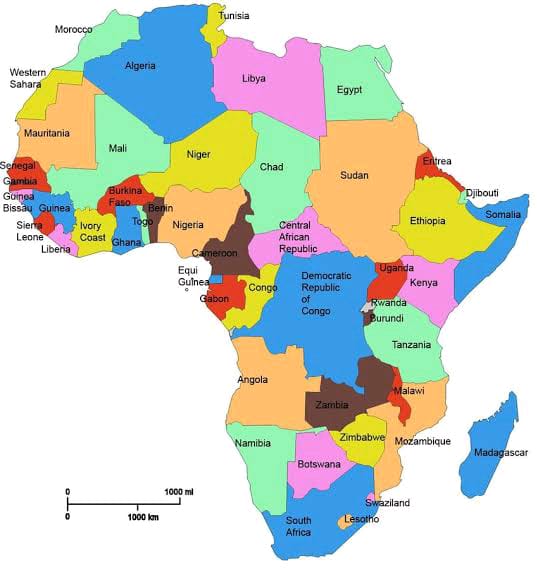African trade has never been marginalized more than the way it is now.
Africans no longer believe in themselves, there is no patronage for goods and services made locally, and no efforts are put in place to improve ties among countries and boost trade within the continent.
This abysmal situation puts Africa at a disadvantage and gives the whites an edge over Africa in terms of benefits made from Africa economically.
Apart from a lack of trust in goods and services, African trade faces many challenges which enormously reduce its effectiveness over the years.
Top on the list are the policies put in place by decision-makers of the participating countries relating to ties and trading activities concerning fellow African countries.
A typical example of Government policies limiting intra-African trade among member countries is the policies laid out by Nigeria’s president, ordering the closure of major borders in its country and promoting the production of local goods within the country.
This decision may look harmless and aimed at promoting the county’s locally manufactured products, but in reality, it only creates a huge gap in trading activities among African countries.
Many other decisions limits intra-African trade activities within the continent and must be addressed if Africa is to move forward.
The issue of financing and investments begs for attention; infrastructural issues, poor networking, transport system, low productivity, and security are major hindrances also limiting trade among Africans.
Table of Contents
What is Intra-African Trade?
Before heading to the nitty gritty of this subject matter, we need to get acquainted with the term; intra-African trade.
Afreximbank defines intra-African trade as the trade in goods and services among African countries or the flow of goods and services between Africa and Africans in the diaspora.
Bringing it further to a better perspective, African trade can simply be seen as the distinctive trading activities between Africa and its citizens.
Early evidence of African trade is dated far back into the pre-colonial era, from the agricultural boom along the Nile valley in Egypt to the huge deposits of Ebony, Gold, Myrrh, and others which were being traded from Egypt up to the land of Punt in the present day Somalia and extending far away to the coast of Ethiopia.
Trading activities in Africa also have a history of being aided by the arrival of the whites into Africa; notable among them is the history of the Portuguese merchants in the trading activities between Nigeria, Ghana, and Togo.
Khan Academy also publishes the fact that the Portuguese were instrumental to the trade between Nigeria and its other neighboring countries, but these trades were complicated due lack of disagreement and diplomatic ties between these countries.
Read also: Top 10 Venture Capitalists in Africa.
How to Promote Intra-African Trade
Publications containing articles about intra-African trade hardly get completed without highlighting issues limiting trade between African countries.
Measures have been taken to curb limitations affecting African trade, but tangible results hardly get seen when it comes to boosting trade among African countries.
Below are issues that must be treated in boosting trade between African countries.
-
Investment
This major issue deserves all the attention it needs if Africa wants to get it right; without investments, African trade may never get the required development.
Investments play a critical role in substantial transformation and development, and it contributes significantly to human development, which helps in alleviating unemployment problems by providing capital for owners of innovative ideas and small business owners to grow and develop.
Rightful investments in African trade can also help create infrastructural development, which benefits the societies, translates into more opportunities, and catalyzes trading activities in Africa.
Read also: Top 10 insightful career webinars you should attend in Africa.
-
Infrastructure
According to a United Nations report, poor roads, rails, and port facilities add 30% to 40% of the cost of goods traded in Africa.
Furthermore, a World bank study shows that the poor infrastructure in many parts of Africa reduced national economic growth by 2 percent yearly and cut business productivity by as much as 40% yearly.
Africans suffer worse infrastructural quality than any other continent of the world.
Considering the rate at which business traders find it hard to transport commodities through borders or the lack of adequate communication system required to enhance trading activities between two traders at different locations, there’s a need for Africa to step up infrastructurally to boost its trade.
Commitment to improving regional markets, instances like the Zaki biam yam market in Benue State Nigeria, which is arguably the biggest yam market in Africa, creating quality storage facilities for these markets and building standard routes which can be used in transporting to these markets can go a long way in boosting trade between African countries.
-
Security
Security plays a critical role in coordinating activities within any country.
To boost trade and improve the economy, Africa must spend heavily on security, equipment must be available, policies must be taken, and all member countries must carry out measures to ensure a safe and conducive environment for trading.
Furthermore, there are also ways through which African trade can be made attractive and competitive without involvement from stakeholders.
These are done majorly through trade fairs.
Read also: Top 10 Companies in Africa you should know.
Intra-African Trade Fair
Trade fairs are exhibitions showcasing products, creating new opportunities, and identifying customers.
These public events are primarily a traditional way of raising awareness and displaying new products to viewers and potential customers.
In Africa alone, various trade fairs have been used to boost trade.
Main African trade Fairs are the Afreximbank trade Fair, IATF (Intra-African Trade Fair), Saitex, and CPHIA (Conference for Public Health in Africa).
These trade fairs are great opportunities for African trade to adopt into its system to boost its trade and create effective transactions among itself.
Conclusion
There is still a lot of work to make African trade a force to reckon with. There are strategies to be put in place, barriers to be breached, and frameworks to be made to deepen and significantly increase the volume of trade within Africa.
Africa’s trade will surely rise and be a major force in the global economy, it all starts now, and we must make it happen.
We must make it a duty to keep adding value to it and keep promoting social and economic development to enhance its growth.
If you would love to know or discuss more about Africa. Follow us on Twitter for more insights.
About Author
- An SEO Content writer with dedicated 4 years experience. I have expertise in typically researching for topics, creating style guides for a company's content, and writing content that helps drive conversions based on the organization's goals.
Latest entries

 CareerFebruary 1, 2024Creating a Company Organogram/Organizational Chart: All You Need to Know
CareerFebruary 1, 2024Creating a Company Organogram/Organizational Chart: All You Need to Know CampusNovember 19, 2023Tuition-Free Universities in Germany: Relocating to Germany Through Study Route
CampusNovember 19, 2023Tuition-Free Universities in Germany: Relocating to Germany Through Study Route Business InsightsSeptember 15, 2023Top 20 Easy-to-Sell Courses on Expertnaire
Business InsightsSeptember 15, 2023Top 20 Easy-to-Sell Courses on Expertnaire

